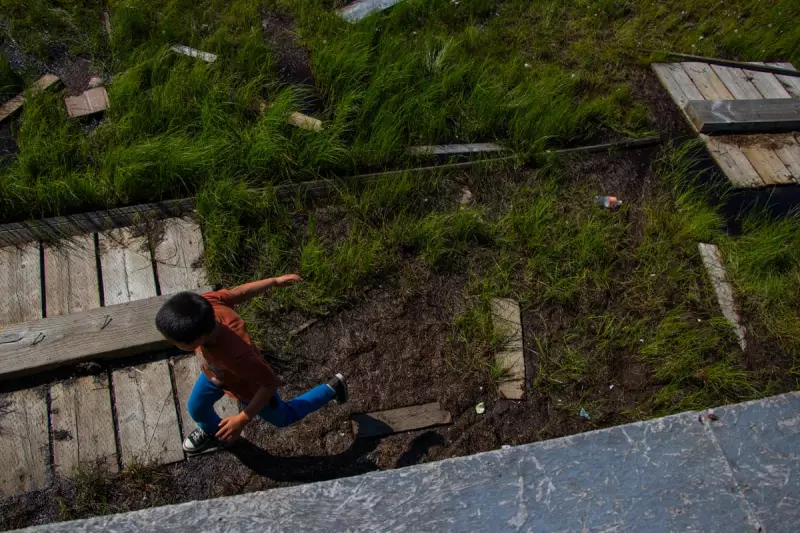
In the remote Alaskan wilderness, the Yup'ik village of Nunapitchuk is fighting a losing battle against the very ground it stands on. As climate change accelerates permafrost thaw at an alarming rate, this indigenous community watches helplessly as their homes, infrastructure, and way of life sink into the softening earth.
A Community on Unstable Ground
The permafrost that has supported Nunapitchuk for generations is now turning to mud, causing buildings to tilt at dangerous angles and roads to become impassable. What was once solid frozen ground capable of supporting heavy structures has become a unstable, shifting landscape that threatens the village's very existence.
"The land is getting softer every year," reports Carl Stover, Nunapitchuk's environmental coordinator. "We're seeing changes that our elders never witnessed in their lifetimes."
The Human Cost of Thawing Permafrost
Residents face daily challenges that read like climate change warning signs:
- Homes sinking and becoming uninhabitable
- Essential infrastructure including water and sewage systems failing
- Traditional hunting grounds becoming inaccessible
- Increased flooding from the nearby Johnson River
- Cultural sites being lost to erosion
Relocation: The Last Resort
With repair costs mounting and safety concerns growing, the community faces the heartbreaking possibility of relocation. However, moving an entire village presents enormous financial, logistical, and emotional challenges.
The estimated cost for relocating Nunapitchuk's approximately 500 residents exceeds $100 million - a staggering figure for a small community. Meanwhile, temporary fixes are proving increasingly inadequate as the permafrost continues to degrade.
A Global Warning from the Arctic Frontline
Nunapitchuk's plight serves as a stark reminder that climate change impacts are not distant future threats but present-day realities for vulnerable communities. As Arctic warming outpaces global averages, indigenous villages across Alaska are becoming climate change ground zero.
The struggle of this small Yup'ik community represents a growing crisis affecting dozens of Alaskan villages, raising urgent questions about climate justice, adaptation funding, and how society protects those on the frontlines of environmental change.





